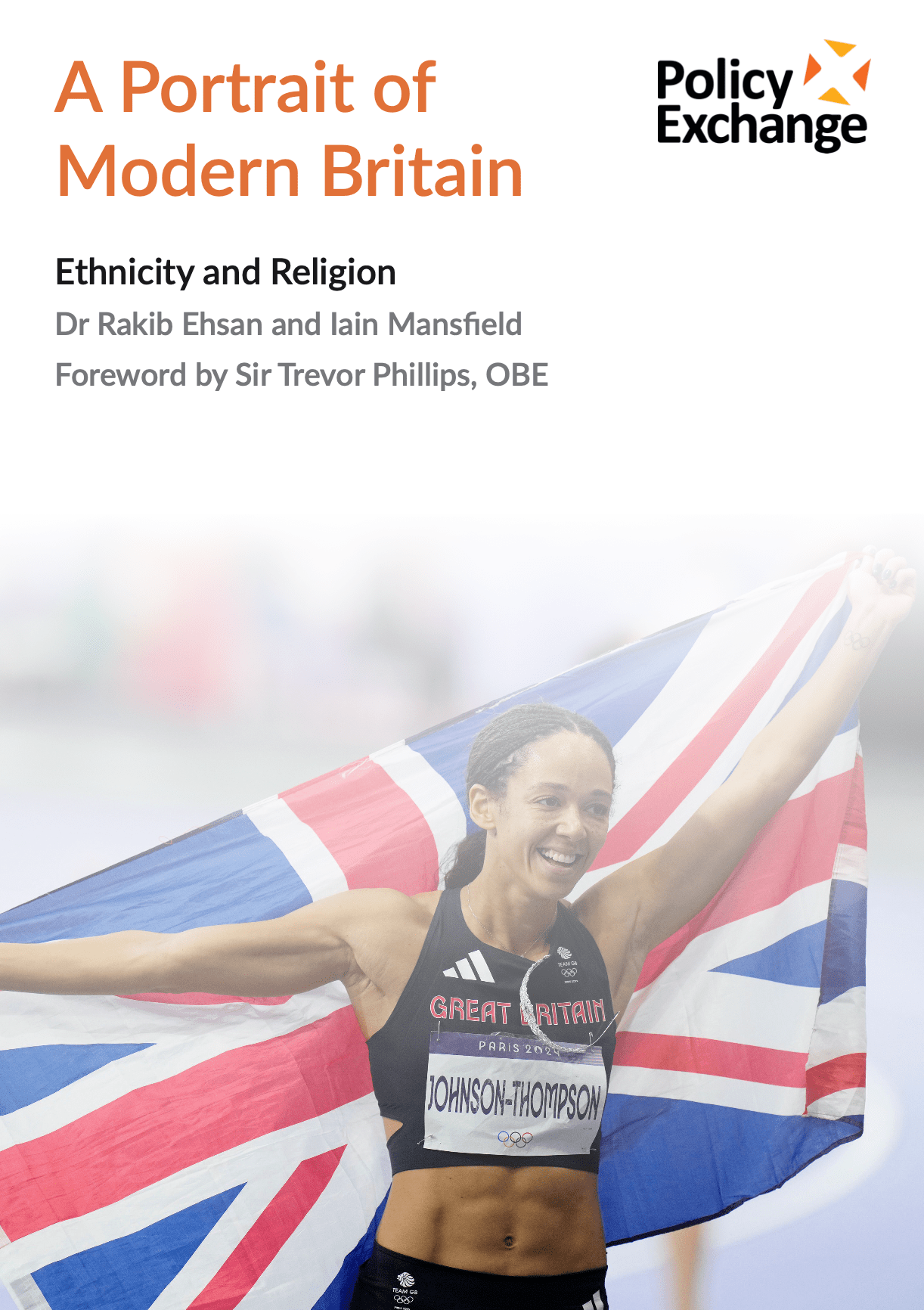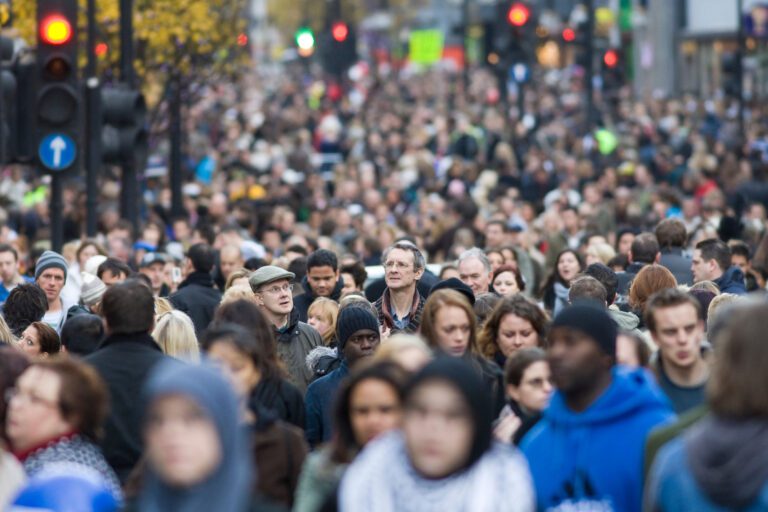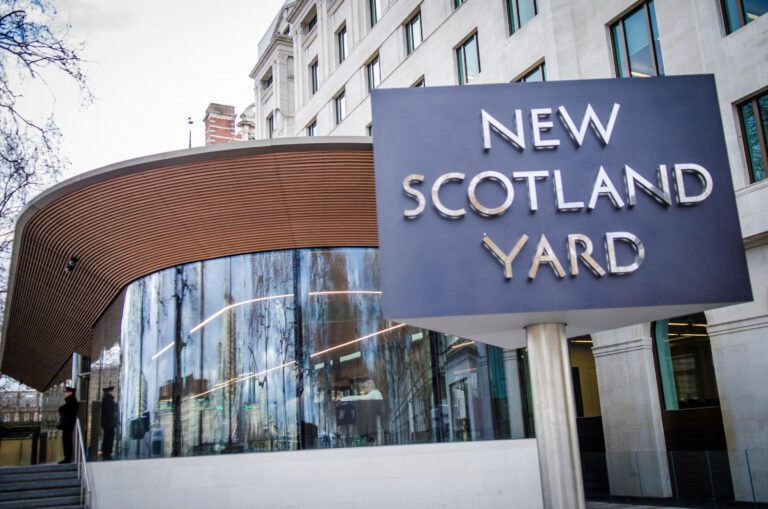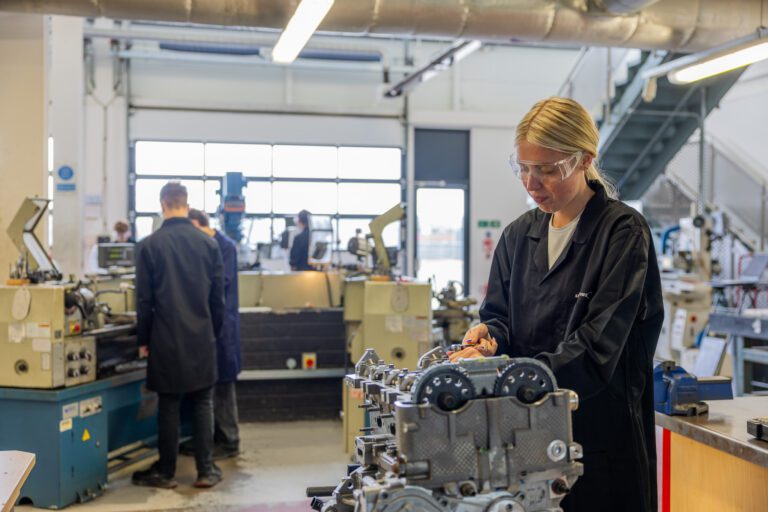A Portrait of Modern Britain
Ethnicity and Religion
A new report published by Policy Exchange, A Portrait of Modern Britain: Ethnicity and Religion carries out the fullest and most in-depth analysis to date of the ethnic diversity of modern Britain. It examines the demographic, educational, health and economic situation of different ethnic groups – as well as their attitudes to issues such as crime, British history, immigration and gender.
The report analyses the 2021 Census data and other statistical resources, combining this with state-of-the-art polling conducted by Redfield and Wilton for Policy Exchange, which surveyed a nationally representative sample of 2,000 people of all ethnicities, alongside ‘booster’ samples of 1400 ethnic minority respondents, 200 each from the Black African, Black Caribbean, Indian, Pakistani, Bangladeshi, Chinese and Mixed-Race ethnic groups. This data was supplemented by a series of in-depth interviews with ethnic minority citizens from a diverse range of backgrounds, ethnicities, faiths, and political leanings.
The report found that almost 3 in 4 people – 72% of those polled believe that children should be taught to be proud of British history, with a majority also believing that Britain has historically been a force for good in the world.
- When asked if children should be taught to be proud of Britain and its history, net positive agreement was recorded for every ethnic group polled, including net positive scores of +58 for the black African, +50 for the black Caribbean and +35 for the Indian ethnic groups.
- Events from British history that people took most pride in included Britain’s role in the World Wars, Magna Carta, the Industrial Revolution and the Abolition of the Slave Trade.
With a foreword by Sir Trevor Phillips OBE, and backed by senior figures from across the political spectrum – including former Chancellor Nadhim Zahawi, former Communities Secretary Ruth Kelly, first Hindu MP Shailesh Vara, Blue Labour academic Jonathan Rutherford and founder of Cobra Beer and cross-bench peer Lord Bilimoria – the report uses census data and exclusive new polling to chart the economic, social and political positions of ethnic minority Britons.
Top findings include:
- Ethnic minority individuals overwhelmingly thought that class was more important than race in determining whether a person would succeed in modern day Britain (54% class vs 26% race). This held true over every ethnic group polled.
- The ethnic group with the highest concentration of professional workers was Indian
- White British pupils lag considerably behind multiple non-white ethnic-minority groups. Chinese-heritage pupils on free school meals perform better than their white-British peers who are not on free school meals.
- Black Caribbean and Gypsy, Roma and Traveller ethnic groups continue to lag on most life outcomes.
- Family breakdown has a dramatically disparate impact across ethnic groups: 63% of dependants with Black Caribbean ethnicity living in a lone-parent household, compared to just 6% of those with Indian ethnicity.
The report argues Britain has historically represented one of the most successful examples of a multi-ethnic democracy in the modern world – but that the summer’s far-right riots and previous intercommunal tensions between ethnic groups show that integration and social cohesiveness cannot be taken for granted. It argues that politicians, educators, and cultural institutions should not feel abashed in building upon this appetite for inclusive patriotism, whether that is doing more to celebrate the contribution of Commonwealth citizens to the World Wars, or by celebrating achievements of universal resonance, such as Britain’s industrial and scientific achievements or our proud history of Parliamentary democracy.
The report concludes that the emphasis must be on fostering shared experiences and bonds of social trust – not only across racial and religious groups, but also between the generations to combat social isolation among the young and old – to cultivate a vibrant, inclusive, and patriotic society in modern Britain.
About A Portrait of Modern Britain
A Portrait of Modern Britain is a major project being undertaken by Policy Exchange that aims to accurately describe the current demographic profile of modern Britain, significant regional and local variations in age and demography – and how these are changing – while charting the wide range of views held by the populous on matters from healthcare to history, immigration to economics.
The first Portrait of Modern Britain was carried out for Policy Exchange in 2014 by two young researchers named Rishi Sunak and Saratha Rajeswaran, the first of whom would go on to become the UK’s first ethnic minority Prime Minister of modern times. Focusing on the lives and contributions of ethnic minority citizens, it was welcomed by politicians and political leaders across the political spectrum.
Using census and other data, alongside new bespoke polling carried out exclusively for Policy Exchange, the new project aims to identify how Governments of whichever party can successfully focus on what unites us – and how to deliver for the country – building on the latent strengths of British identity and culture that bind us together, while fulfilling the legitimate material and economic aspirations of the younger generation.
The launch of ‘A Portrait of Modern Britain: Ethnicity and Religion’ was covered by:
Related Publications
Authors

Dr Rakib Ehsan
Senior Fellow

Iain Mansfield
Director of Research and Head of Education and Science




